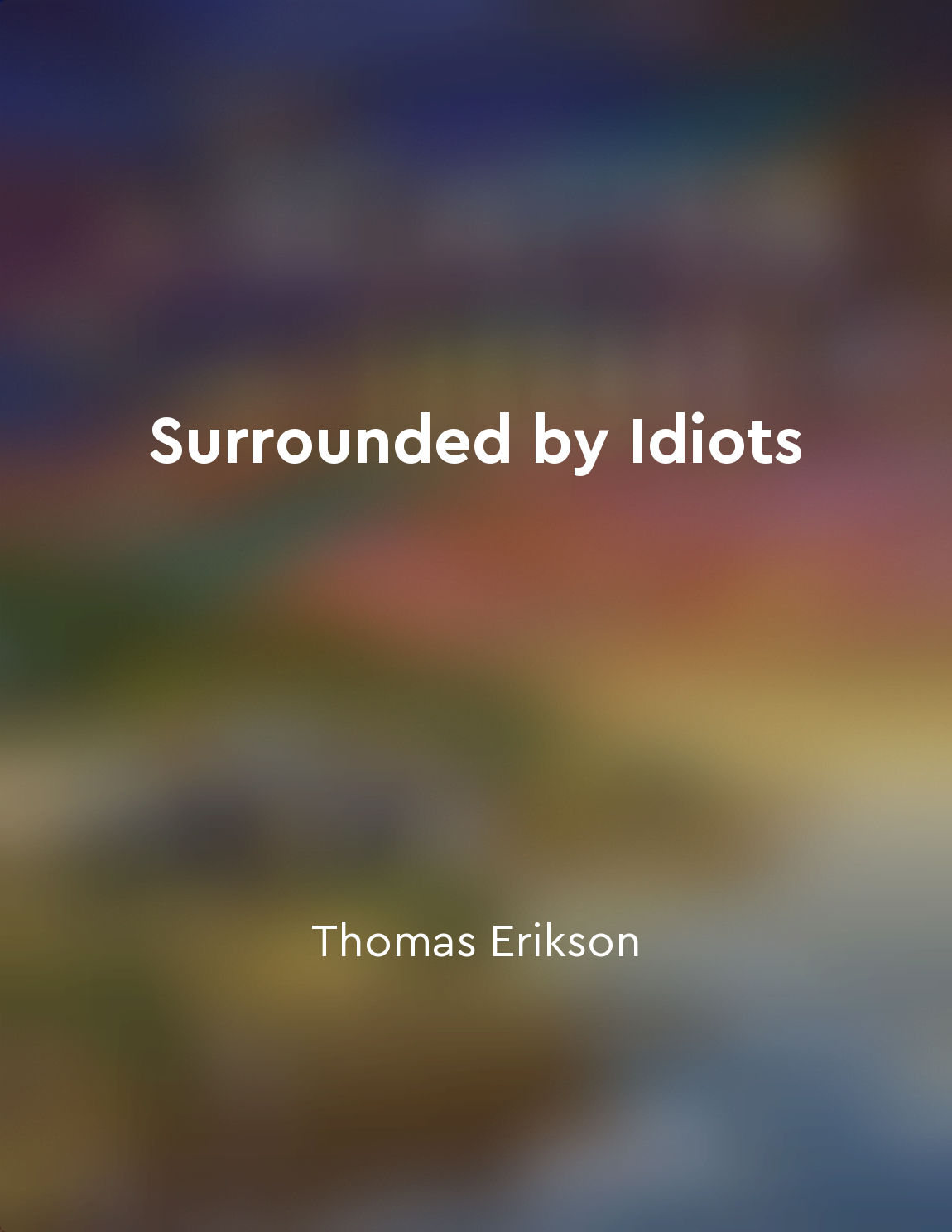Audio available in app
Recognize that misunderstandings are often the result of differing perspectives from "summary" of Surrounded by Idiots by Thomas Erikson
When two people have a disagreement, it's easy to assume that the other person is wrong and we are right. We tend to believe that our perspective is the only valid one, and that the other person simply doesn't understand. However, in reality, misunderstandings often occur because each person has a different way of perceiving the world. For example, imagine a situation where two colleagues are working on a project together. One person is very detail-oriented, focusing on the specifics and the nitty-gritty of the task. The other person, on the other hand, is more big-picture oriented, looking at the overall goal and the broader implications of the project. When they communicate with each other, they may clash because of their differing perspectives. The detail-oriented colleague may feel that the big-picture colleague is being careless and not paying enough attention to the specifics. On the other hand, the big-picture colleague may feel that the detail-oriented colleague is being overly focused on minor details and missing the bigger picture. This clash of perspectives can lead to misunderstandings and conflict. By recognizing that misunderstandings are often the result of differing perspectives, we can start to bridge the gap between ourselves and others. Instead of assuming that the other person is wrong, we can try to understand where they are coming from and why they see things the way they do. This can help us communicate more effectively and resolve conflicts more easily. In the example of the two colleagues, they could try to find a middle ground where they can both appreciate each other's perspectives. The detail-oriented colleague could learn to see the bigger picture, while the big-picture colleague could pay more attention to the specifics. By doing so, they can work together more harmoniously and achieve better results.- Understanding that misunderstandings are often the result of differing perspectives can help us navigate conflicts and disagreements more effectively. Instead of getting frustrated and defensive, we can approach disagreements with an open mind and a willingness to see things from the other person's point of view. This can lead to more productive conversations and stronger relationships in both personal and professional settings.


